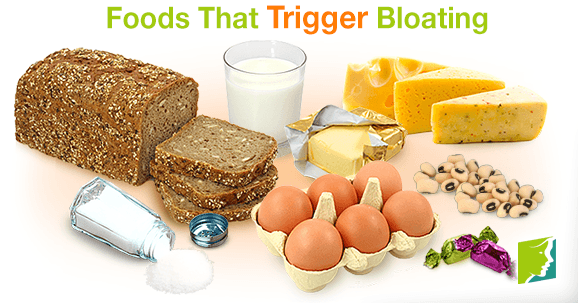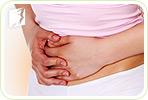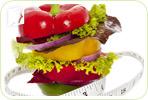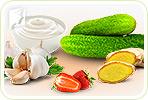Stomach bloating after eating can be distressing and irritating. Feeling bloated can cause your abdomen to feel tight and full, and in some cases the swelling of your stomach can be noticeable to others, making you feel self-conscious. Keep reading to find out five foods which can cause bloating after eating and how to prevent it.
Whole Grains
Whole grains are not a food that should usually be avoided, since their high fiber content is full of health benefits. However, because fiber is an indigestible carbohydrate, suddenly increasing the amount you consume can cause gas and bloating after eating. Instead, you should try to increase the amount of fiber in your diet gradually, while drinking plenty of water at the same time. Water is essential because it is absorbed by the fiber, which in turn helps the fiber move through the digestive system more easily, preventing constipation and bloating after eating.
Salt
Although gas is the main culprit most commonly blamed for causing bloating after eating, it can actually also be the result of water retention. Salt causes your body to retain water, particularly around your abdomen, causing your belly to swell after you eat. You can solve this problem by avoiding foods with high salt content and not adding salt at the table.
Dairy
One in 10 American adults have trouble digesting lactose or milk sugar, meaning that dairy products can be a hidden cause of intestinal distress and make many people experience bloating after eating. While some dairy is important in maintaining a healthy, balanced diet, for the lactose-intolerant it may be wiser to look for alternative sources of calcium and protein, or to switch to lactose-free versions. The best way to find out if dairy is the cause of your bloating is by eliminating it from your diet for two to three weeks and see if your bloating improves.
Sweeteners
Sorbitol, a sugar alcohol which is used to sweeten many foods, cannot be digested by many people. Similarly, fructose, a natural sugar, can also be difficult to digest. When your body has difficulty digesting something, it creates an unusual amount of gas that can trigger bloating shortly after eating it. To prevent this from occurring, try to limit the amount of sweeteners you consume, and be aware of whether or not your food contains them.
Legumes
Legumes, such as lentils, beans, and chickpeas, are well known for making people feel gassy and bloated after eating them. Although these foods are healthy for you and should not be eliminated completely, they do contain a sugar called raffinose, which is difficult for your body to break down. Try to reduce the amount you eat from your diet rather than cutting them out.
Bloating is a common and annoying problem, and many women going through menopause suffer from it. Fortunately, bloating after meals is something that can be avoided by learning which foods make you more susceptible to it. Cutting out or reducing the five foods above can be your first step to beating the bloat.
Sources
- National Health Service UK. (2012). Beat the Bloat. Retrieved August 20, 2013, from http://www.nhs.uk/Livewell/digestive-health/Pages/beat-the-bloat.aspx
- National Library of Medicine. (2012). Abdominal bloating. Retrieved August 20, 2013, from http://www.ncbi.nlm.nih.gov/pubmedhealth/PMH0003610/
- Torrens, K. (2013). How to eat to avoid feeling bloated. Retrieved August 20, 2013, from http://www.bbcgoodfood.com/howto/guide/how-eat-avoid-feeling-bloated




